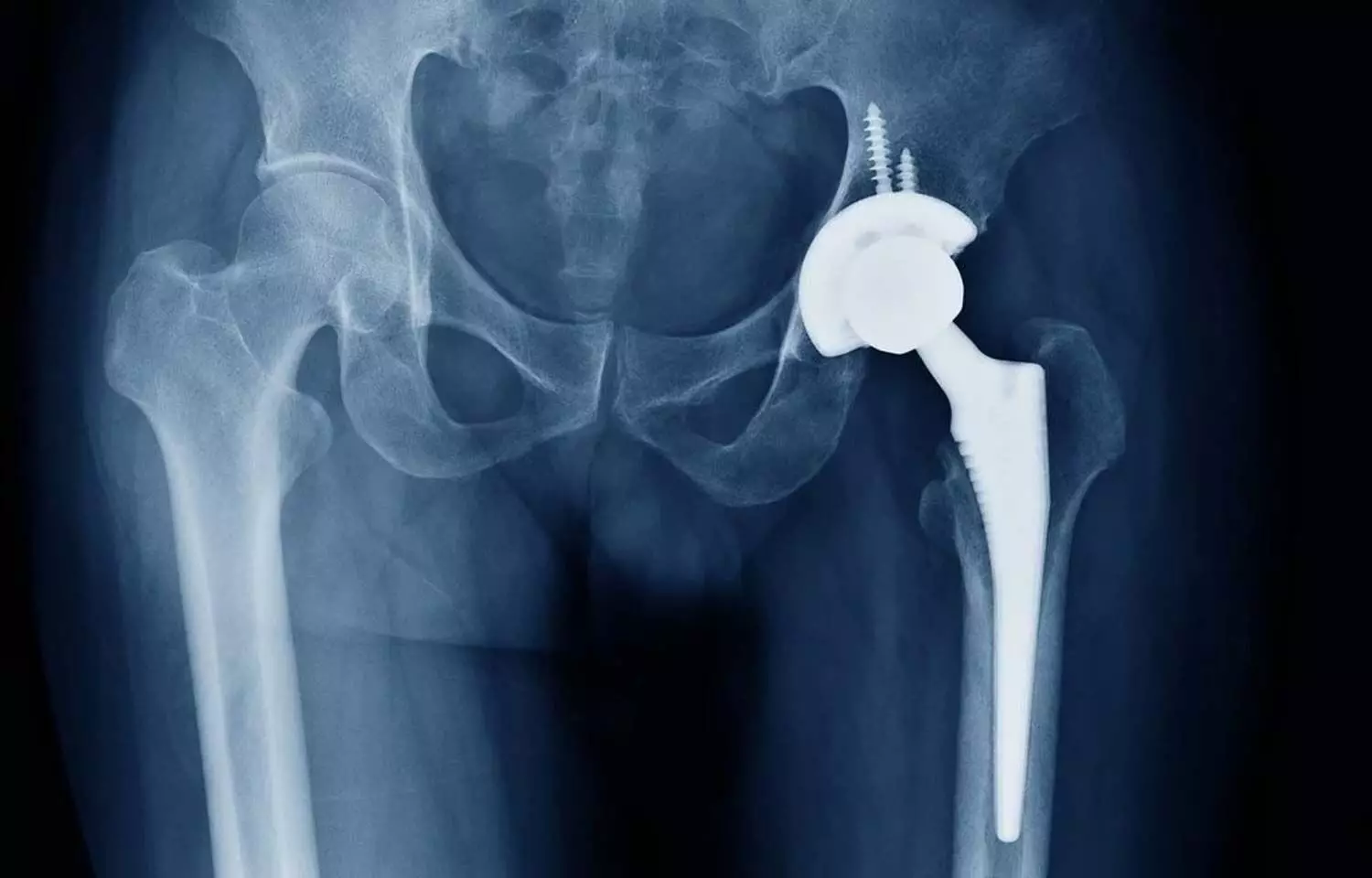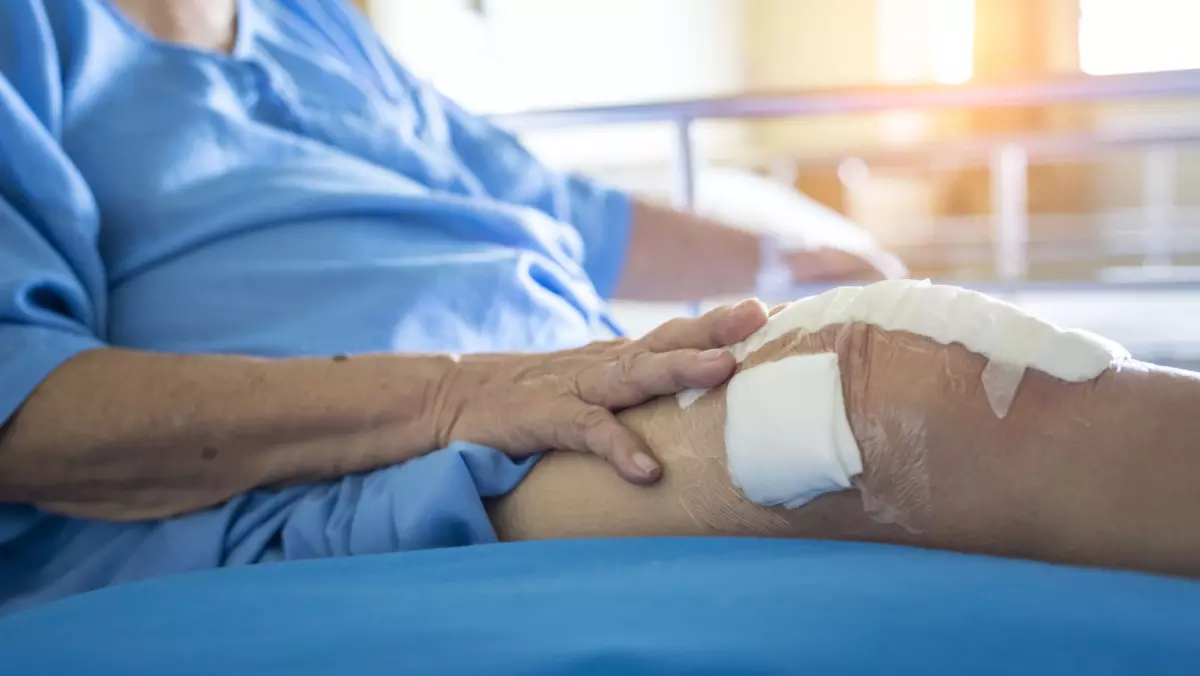Blood-based marker developed to identify sleep deprivation
Powered by WPeMatico
Powered by WPeMatico
Powered by WPeMatico
Powered by WPeMatico
Powered by WPeMatico
Powered by WPeMatico

Ahmedabad: Zydus Lifesciences has announced that the Company has received the EIR report from the United States Food and Drug Administration (USFDA) for the inspection
conducted at the API Ahmedabad facility.
The company had earlier received Post Application Action
Letter from the USFDA for the same inspection confirming that the inspected facility has been
considered as ready to commercially manufacture and supply the API.
Read also: USFDA gives nod for commercial production at Zydus Ahmedabad API unit
“This facility underwent an
inspection from 14th to 22nd Dec 2023 and has been classified as Voluntary Action Indicated (VAI),” the Company stated in a BSE filing.
Formerly known as Cadila Healthcare Limited, Zydus Lifesciences Limited is an Indian multinational pharmaceutical company headquartered in Ahmedabad. The company is primarily engaged in the production of generic drugs. Cadila was founded in 1952 by Ramanbhai Patel.
Read also: Zydus Lifesciences aims to launch first new drug in US by early 2026
Powered by WPeMatico

Mumbai: A senior resident doctor working at King Edward Memorial (KEM) Hospital, Mumbai has been duped of ₹7.33 lakh by perpetrators, initially impersonating courier company executives and later assuming the guise of Mumbai cyber police officials.
The accused even exploited the name of Navi-Mumbai police commissioner Milind Bharambe to create an illusion of legitimacy during the fraudulent operation.
The police have registered a case against unknown people under sections 419 (personation for cheating), 420 (cheating and dishonestly inducing delivery of property), 465 (forgery) and 467 (forgery of valuable security, will, etc). According to the police, Sections 66C (identity theft) and 66D (cheating by personation by using computer resources) of the Information Technology Act, 2000, were also invoked in the case.
The incident unfolded on February 29 when the 27-year-old doctor received a call at KEM Hospital from an unknown number, purportedly from FedEx courier services. The caller informed her that a parcel traced at Mumbai airport in her name contained 5 passports, 3 credit cards, 140 grams of MDMA pills, clothes, and a laptop, allegedly sent to someone in Taiwan. The caller directed her to speak with their customer care executive to address the situation, who later transferred the call to the cyber police.
Under the guise of the cyber police, the doctor was questioned about the alleged parcel she had sent to Taiwan. When she denied involvement, the fake cyber crime department official advised her to register an offence online. To substantiate the ruse, the fraudster even sent her a fabricated letter signed by ‘DCP Cyber,’ Milind Bharambe. The doctor was instructed to stay in a hotel near her bank (HDFC), and subsequently, she booked a room at Hotel Midtown Pritam in Dadar East, reports Hindustan Times.
“She was told to file a complaint and download a link. A video call was made to her from an ID which showed the Mumbai Crime Branch logo by a man wearing a police uniform. This man told the victim her Aadhaar card details were used to open bank accounts in Punjab, Tamil Nadu, and Goa, which were used for terror funding,” the official said while explaining the incident. The fake police official informed her that she was arrested “digitally” and then asked her to send Rs 1 lakh to a particular bank account and to book a hotel room, which she did.
“She spoke from this hotel room to the fraudsters on video call. She was sent a bank letter and told to deposit Rs 6.84 lakh, which the fraudsters said would be refunded once all her financial transactions are checked. She was made to deposit another Rs 48,000,” he said. “She stayed there on February 29 and returned home the next day, when she received a call from the fake police officer, who informed her that she would get a letter from the Reserve Bank of India (RBI).
A letter from RBI arrived from an unknown number, stating that for the money laundering case, her code was 684315 and that she would have to deposit a sum of ₹6,84,315 in RBI after which the banking regulator would verify all her bank accounts and half-an-hour later her money would be returned to her,” said the police officer from Bhoiwada police station.
According to The Daily, she was informed that her bank accounts were being examined when she contacted the fictitious police officer a short while later to ask why she had not received her money back from RBI. She was also questioned by the crook regarding the amount of money that was left in her account. “When she told him that the balance in her account was ₹76,261, he told her that she needed to file nine affidavits, as they had decided to give her a clean chit. The charge for each affidavit was ₹5,000 and therefore, she was required to pay ₹48,800, including application fee,” said the police officer.
The fraudsters manipulated the doctor by creating a sense of urgency and a faux law enforcement scenario, eventually swindling ₹7.33 lakh from her. During the final stage of the con, her roommate came to know about the ordeal and told her that she might have been duped. Realising that she had been duped, the victim approached Bhoiwada police station on Thursday, after which a case was registered.
The Mumbai cyber police are actively investigating the case to apprehend the culprits and bring them to justice.
Powered by WPeMatico

Faridabad: In a medical marvel, doctors in Haryana’s Faridabad have successfully conducted liver transplants in two young girls with rare diseases, using a bloodless technique.
The girls, aged 10 and 11 years, suffered from Wilson’s disease, an inherited disorder that accumulates copper in the body; and an autoimmune liver disease, where the body’s immune system mistakenly attacks the liver.
Their livers were transplanted using the bloodless technique — the most advanced technique applied in high-end surgeries, including organ transplants. In the technique, the blood spillage from the patient is transfused back into the body, rendering the requirement of the transfusion of external blood unnecessary, said the doctors at Marengo Asia Hospitals, who pioneered the technique in India and South Asia.
“I have witnessed the resilience of these young patients. Despite their small stature, their courage and strength in facing such a challenging surgery inspire hope not just in their families but in all of us,” Dr Punit Singla, Director & HOD, Liver Transplant, Marengo Asia Hospitals, told IANS.
“Every transplant is a testament to the power of medicine, teamwork, and the generosity of organ donors. Today, we have not just given them a new liver; we have given them the chance to embrace life with renewed vigour and optimism,” he added.
Baby Lachyn, 11, suffering from Wilson’s disease, was admitted to the emergency with abdominal distension in an unconscious state. She had severe jaundice and hepatic encephalopathy. In individuals with Wilson’s disease, the defective protein impairs the body’s ability to eliminate excess copper, leading to its accumulation in the liver and subsequent release into the bloodstream.
While the complex surgery lasted for 12 hours, the bloodless technique helped the surgeons overcome significant risks.
The second patient, Aruuzatym,11, from Kyrgyzstan was presented to the hospital with decompensated liver disease, along with low platelet count and recurrent bleeding from the nose.
In both cases, the girls’ fathers were the donors, and were discharged after a week, while the girls were discharged after three weeks, the hospital said.
Powered by WPeMatico

In the ever-evolving landscape of diabetes management, semaglutide has emerged as a formidable player, celebrated not just for its prowess in glycemic control but also for its unique ability to induce weight loss. The latest research endeavor has turned its attention to the role of semaglutide in the aftermath of total hip arthroplasty (THA), aiming to decipher whether patients on this medication experience fewer complications, decreased readmissions, and reduced costs post-surgery. This study sheds light on the positive outcomes associated with semaglutide users undergoing THA, specifically revealing fewer 90-day readmissions and a decrease in 2-year prosthetic joint infections.
Further reading: Magruder ML, Miskiewicz MJ, Rodriguez AN, Mont MA. Semaglutide Use Prior to Total Hip Arthroplasty Results in Fewer Postoperative Prosthetic Joint Infections and Readmissions. J Arthroplasty. 2024;39(3):716-720. doi: 10.1016/j.arth.2023.12.023
Powered by WPeMatico

Total knee arthroplasty (TKA) is a commonly performed procedure to alleviate pain and improve functional limitations caused by end-stage joint damage. Effective management of postoperative pain following TKA is crucial to the prevention of complications and enhancement of recovery. Adductor canal blocks (ACB) with conventional bupivacaine (CB) provide adequate analgesia after TKA, but carry a risk of rebound pain following block resolution. Liposomal bupivacaine (LB) is an extended-release local anesthetic that can provide up to 72 h of pain relief.
Quaye et al conducted a study to compare postoperative outcomes between ACBs using LB and CB after TKA. the study has been published in “arthroplasty journal.”
This single institution, prospective, randomized, clinical trial enrolled patients scheduled for TKA. Participants were randomized to receive ACB with either LB or CB. Pain scores up to 72 h postoperatively were assessed as the primary outcome. Opioid consumption and length of stay were evaluated as secondary outcomes. Results A total of 80 patients were enrolled. Demographic and clinical characteristics were similar between the two groups.
Key findings of the study were:
• A total of 80 patients (40 in each arm) were enrolled, of whom 66 (82%) completed the study with no protocol deviations.
• LB group showed significantly lower cumulative opioid use during the 72 h evaluated (P=0.016).
• There were no differences in pain scores or length of stay between the groups.
The authors commented that – The findings from our own randomized controlled trial provide additional evidence that postoperative blocks using LB in ACBs may not effectively reduce pain after surgery. However, they do support the notion that LB has a positive impact on reducing postoperative opioid consumption, indicating a potential benefit in this aspect of patient care. Future studies are needed to investigate the effectiveness of LB for specific procedural types and to explore potential neuro-anatomical differences that may help explain the inconsistencies in its reported effectiveness. In conclusion, we found that using LB in an ACB after TKA led to decreased opioid consumption up to 72 h following surgery. These results add to the existing literature regarding the benefits of LB and may inform the current practice of the of-label use of LB after TKA.
Further reading:
A prospective, randomized trial of liposomal bupivacaine compared to conventional bupivacaine on pain control and postoperative opioid use in adults receiving adductor canal blocks for total knee arthroplasty Quaye et al. Arthroplasty (2024) 6:6 https://doi.org/10.1186/s42836-023-00226-y
Powered by WPeMatico
